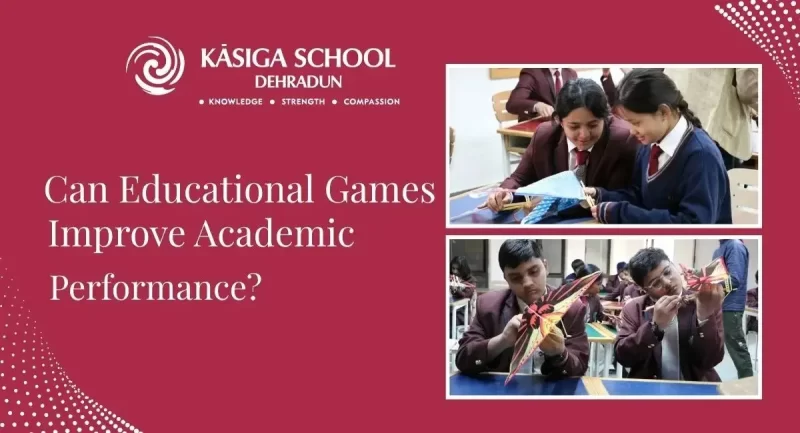For a long time, games were regarded only as a means to have a good time or relax & be away from studies. But now things are getting changed. Due to the growth of technology & innovative learning techniques, parents & many schools have begun to look at games as a learning tool with immense power. The concept that learning can be enjoyable is no longer just an idea, it’s a reality being incorporated into classrooms on a global scale.
So, the question is: Can educational games improve academic performance? Amazingly, the answer is yes & there’s a lot of sense behind it. When students play games that are specifically designed to teach, they are not simply playing; they are learning, practicing & thinking simultaneously. These games can assist in constructing memory, enhance concentration & even make difficult subjects easier to grasp.
With that being said, let’s look at how educational games can improve academic performance:
• Learning Becomes Fun & Less Stressful
One of the biggest reasons that educational games & academic performance are linked is due to the fact that games make learning less work-like. Students tend to stress out when they have to memorize chapters or solve hard problems. But when the same subject matter is made into a game, it becomes fun rather than stressful.
Consider a spelling game or math problem, for instance. Rather than getting bored, children are attentive, thinking & problem-solving with interest. They neither know how much they are learning because they enjoy it. This attitudinal shift toward learning enhances attention & outcomes in the long run.
• Enhances Critical Thinking & Problem-Solving Abilities
Video games tend to necessitate strategy, timing, making decisions & logic. Such skills are applicable not only to games but even to academics. If students frequently play educational video games, they become accustomed to thinking fast & finding solutions for problems in novel ways.
For instance, a quiz game based on science may ask a student to respond to a question in a matter of seconds. This improves their response speed. Over time, this increases their general school performance since they start tackling challenges with improved concentration & confidence. This is one of the most underrated benefits of educational games in learning.
• Fosters Teamwork & Healthy Competition
Most educational games are meant to be played as groups. As students play as groups to achieve victory, they learn to work together, collaborate ideas & problem-solve collectively. Not only does it improve them academically but also enhances their communication & interpersonal skills.
Even when they are playing alone, students are encouraged to beat their past scores or perform better than others in a friendly manner. This feeling of healthy competition compels them to work harder & remain consistent in their studies. It’s yet another powerful manner in which educational games & academic performance go hand in hand.
• Assists With Revision & Concept Clarification
Games can be an enjoyable method of revising previous topics. Instead of reading the same chapter repeatedly, students can play a quiz or game on the topic. This makes revision less dull & more engaging. It also aids in better comprehension, particularly for visual & practical learners.
Suppose a child has difficulty recalling grammar rules. But once they play a grammar game where they receive points for proper usage, they will likely recall the rules more easily. That’s why teachers incorporate games into lesson plans nowadays, as it really solves the question, “Do games help students learn better?“
• Increases Motivation & Interest in Studies
When students like something, they naturally want to do it more. Games bring that level of interest in learning. They shatter the monotony of conventional study patterns & present a new way of learning things. Thus, students who used to find subjects tough may begin liking them.
When students are engaged & motivated, they work harder & put more effort into their schoolwork. This tends to result in improved marks, improved understanding & improved classroom behavior. So yes, educational games & academic performance do go hand-in-hand in more than one way.
Wrapping Up
In today’s fast-changing world, students need more than just books & notes. They need things that will make them enjoy learning & that’s where educational games come to the rescue. They infuse joy, interaction & greater comprehension into topics that were before dull or difficult. They also assist in the development of skills that are beneficial well beyond the classroom.
At Kasiga School, we believe learning should be meaningful & enjoyable. That’s why we support the use of educational games in the right balance with traditional teaching methods. Because when learning is fun, children remember it longer, understand it better & grow not just as students but as thinkers, creators & leaders of tomorrow.

